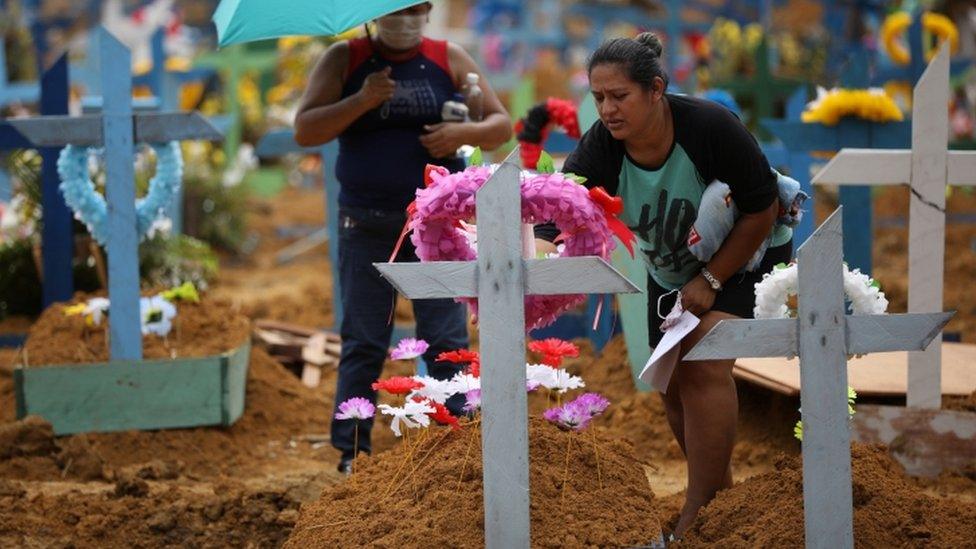Coronavirus: Hospitals in Brazil's São Paulo 'near collapse'
- Published
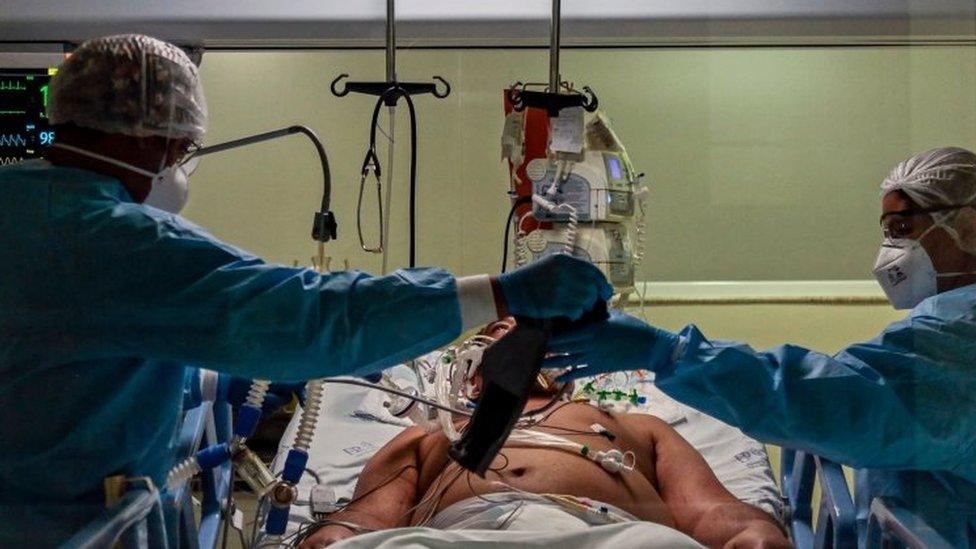
São Paulo's public hospitals could be overwhelmed in about two weeks' time, the city mayor warned
The mayor of Brazil's largest city, São Paulo, has said its health system could collapse as demand grows for emergency beds to deal with coronavirus cases.
Bruno Covas said the city's public hospitals had reached 90% capacity and could run out of space in two weeks.
He accused those who flouted lockdown rules of playing "Russian roulette" with people's lives.
São Paulo is one of the country's worst-hit regions, with almost 3,000 deaths so far.
Brazil's far-right president Jair Bolsonaro has been strongly criticised both at home and abroad for his handling of the country's escalating coronavirus crisis.
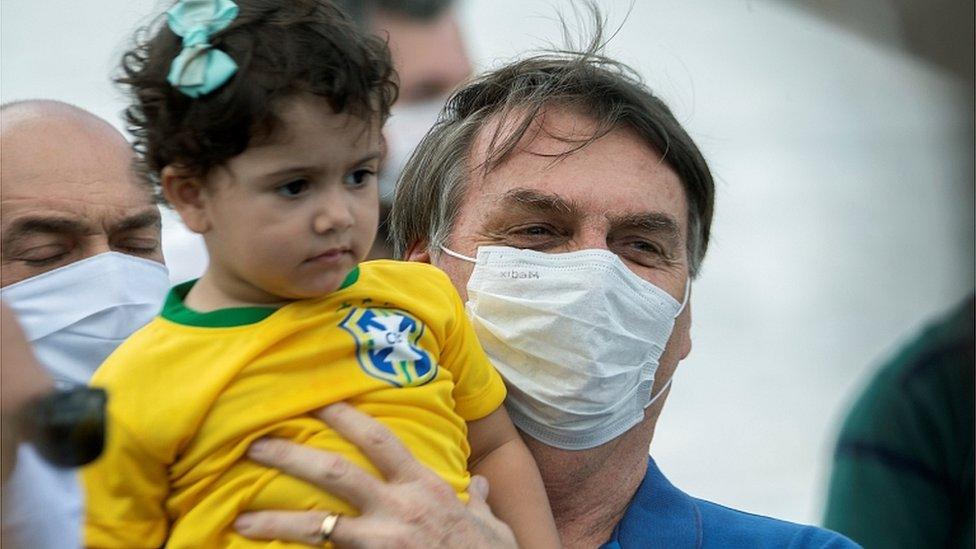
President Bolsonaro told a rally on Sunday that anti-virus measures were excessive
He defied global health advice on social distancing on Sunday when he posed for photographs with supporters and children in the capital, Brasília.
On Saturday, Brazil overtook Spain and Italy to become the country with the fourth-largest number of infections.
The health ministry reported 7,938 new cases in the past 24 hours, taking the total above 241,000. Only the US, Russia and the UK have higher numbers.
The death toll in Brazil over 24 hours was 485, meaning that the total number of deaths is 16,118 - the world's sixth-highest figure.
Health experts have warned that the real number of confirmed infections in the country may be far higher than the official records, due to a lack of testing.
What did São Paulo's mayor say?
Mr Covas said he was now in talks with the state governor over introducing a strict lockdown to try to prevent hospitals being overwhelmed.
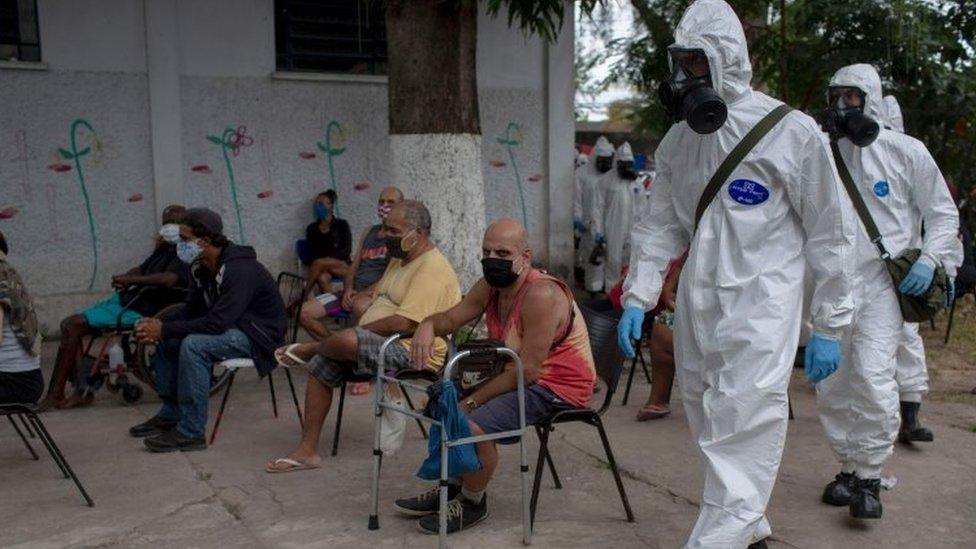
Brazil has for several weeks been at the centre of the coronavirus outbreak in Latin America
The governor of São Paulo state controls the police, and his support will be essential if a lockdown is to succeed.
Mr Covas called on people to stay at home, saying São Paulo needed to "slow down even more" to reduce contagion.
"It is hard to believe that some prefer the population to be subjected to Russian roulette. Indifference in the face of death is unseemly," he said.
São Paulo has a population of about 12 million, and official figures show most residents are ignoring social distancing rules.

Tougher lockdown expected

A quarantine in São Paulo state was imposed nearly two months ago - businesses, schools and public spaces were closed and people were asked to stay at home.
But there are no costly punishments for those who flout the rules - plenty of Paulistanos (residents of São Paulo city) are still choosing to drive to the beach for the weekend and it's getting locals very cross.
A recent rule brought in that made the wearing of masks mandatory is often ignored - at the weekend, I saw plenty of people going for their Sunday cycle or run either with no mask or wearing one around their neck. It doesn't feel as though the virus is being taken seriously.
At the same time, people are seeing Europe start to open up and wonder when it's going to happen here. But as the mayor said at the weekend, the city has to stop before it can re-open. Many are expecting a tougher lockdown in the weeks ahead.

What's the situation in other parts of Brazil?
São Paulo is not the only region to be badly hit by the outbreak. Amazonas state had more than 20,300 confirmed cases as of Sunday, according to official figures.
Health services in Manaus, the state capital, have been overwhelmed and mass graves are being used to bury the dead.
Sao Paulo: Latin America's biggest graveyard from the sky
The virus could be particularly deadly for indigenous people living in remote areas of the state with little or no access to healthcare.
Experts are worried by the speed at which the virus is spreading. On 15 April, Amazonas state had 1,554 confirmed cases. One month later, that number stood at 18,392, according to the Foundation for Health Monitoring (FVS).
And it is not just remote states that have high numbers of deaths. Rio de Janeiro has the second-highest death toll after São Paulo and its doctors have also warned of increasing shortages of beds in intensive care units.
How is President Bolsonaro handling the crisis?
Mr Bolsonaro continues to oppose lockdown measures, arguing that social distancing will wreck the economy.
In March he made a speech calling on mayors and governors to roll back restrictions: "Our lives have to go on. Jobs must be kept. We must get back to normal."
From 21 April 2020: The BBC's South America correspondent Katy Watson looks at how Bolsonaro has responded to the virus in Brazil
The president described the closures of businesses and schools, together with restrictions on public transport, as "scorched-earth" policies.
Despite the rapidly rising infection rate, Mr Bolsonaro argued that most people, including himself, had nothing to fear from the virus.
"With my history as an athlete, if I were infected with the virus I would have no reason to worry. I would feel nothing, or it would be at most just a little flu," he said.
Last week, Brazilian Health Minister Nelson Teich resigned after less than a month in the job. He stepped down after he had publicly criticised a decree by Mr Bolsonaro allowing gyms and beauty parlours to reopen. Mr Teich's predecessor was sacked after disagreeing with Mr Bolsonaro.

THE R NUMBER: What it means and why it matters
GLOBAL SPREAD: Tracking the pandemic
RECOVERY: How long does it take to get better?
A SIMPLE GUIDE: What are the symptoms?

- Published21 April 2020
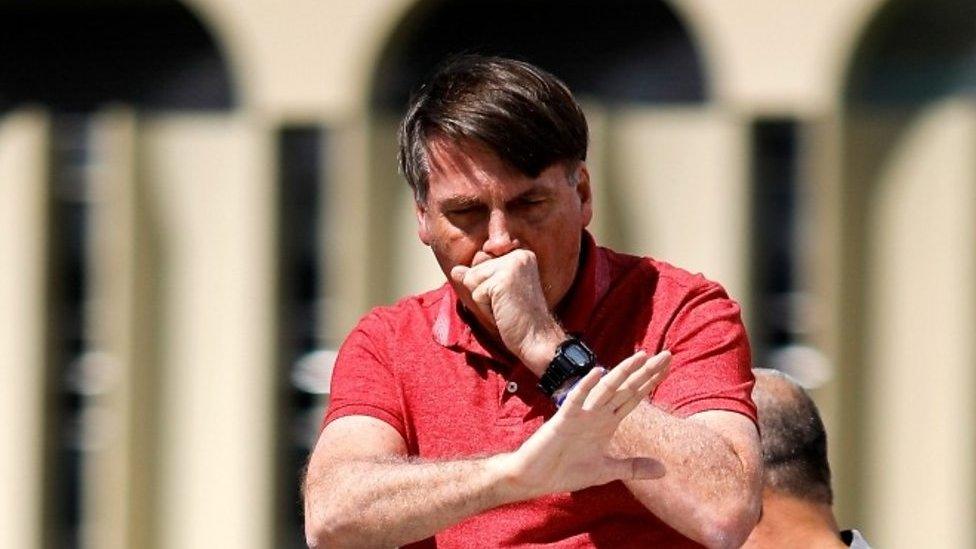
- Published7 May 2020
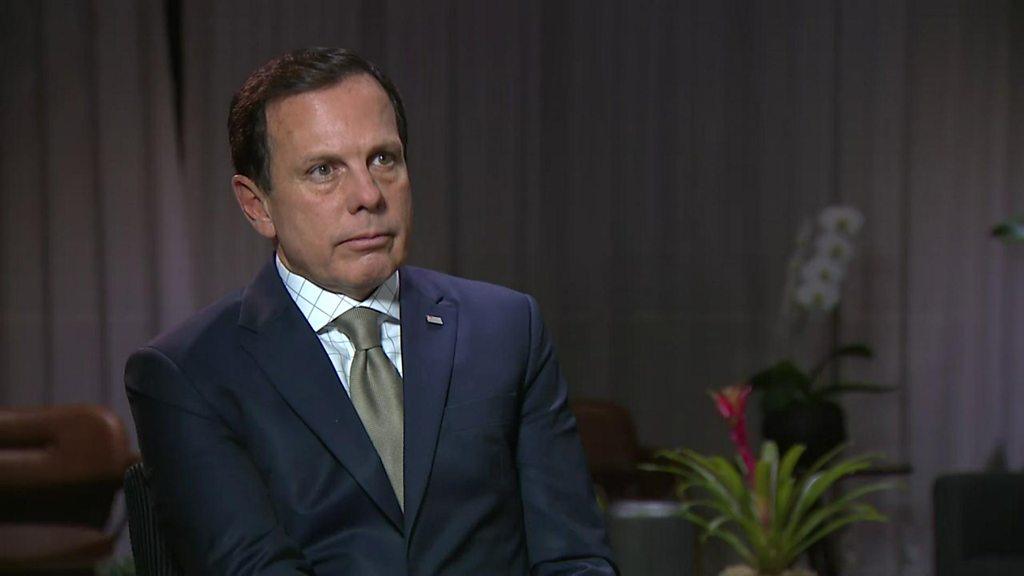
- Published16 April 2020
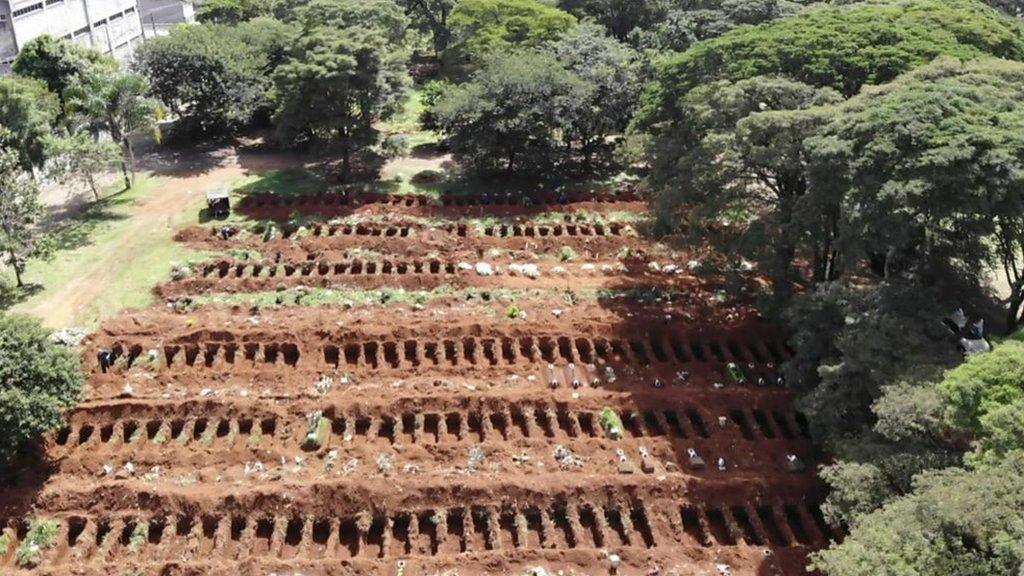
- Published12 May 2020
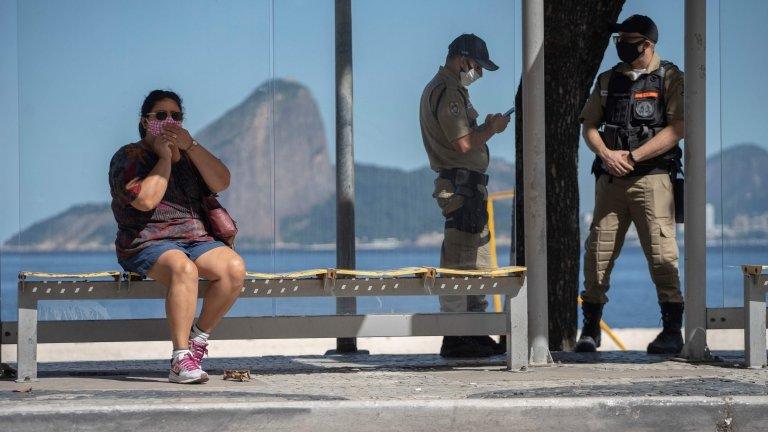
- Published4 May 2020
